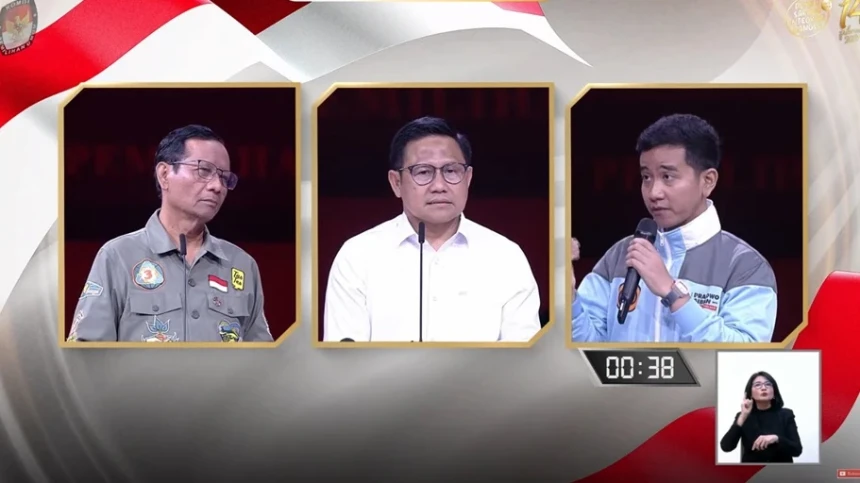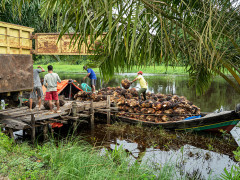19-NGO Coalition Launches Website to Monitor Peat Restoration Commitments
By Admin Pantau GambutPolitical Parties Overlooked Record in the Vice Presidential Debate

Although all three vice-presidential candidates touched upon issues of deforestation and land provision for the people, it is worth noting that the majority of their supporting political parties have expressed their support for the Omnibus Law. Furthermore, none of the candidates addressed the degradation of peatland ecosystems and its consequences, such as forest and land fires. Wahyu Perdana, the Campaign and Advocacy Manager at Pantau Gambut, remarked, "The vice-presidential candidates' ideas on food, the environment, and sustainable development in yesterday's debate tended to be normative."
The Omnibus Law, supported by almost all political parties, has had significant negative impacts on forest and land governance. This law effectively "whitens" illegal palm plantation companies operating within forest areas. However, such permits contribute to the destruction of 407.2 thousand hectares of peat hydrological units within the protective function of peatland ecosystems. Furthermore, law enforcement remains lax and lacks transparency for the 35 companies sealed by the Ministry of Environment and Forestry concerning forest and land fires in 2023.
In the realm of food security, the ramifications of the Job Creation Law have been decidedly detrimental. By revising the national food reserve provisions outlined in Law No. 18 of 2012 regarding Food, the Job Creation Law has effectively opened the floodgates to food imports, even when domestic reserves remain ample. This shift has not only disrupted the equilibrium of the national food supply but has also placed local farmers in a precarious position. They find themselves competing with imported goods that inundate the market, posing a significant threat to their livelihoods. These repercussions underscore the critical need for scrutiny and proactive measures to address the adverse impacts of legislative decisions on our food systems.
The role of the political parties of the three presidential and vice-presidential candidates is also responsible for the failure of the Food Estate project, which was touted as a program to meet the national food needs. Pantau Gambut found that cassava planted in Gunung Mas Regency and Pulang Pisau Regency, Central Kalimantan, failed completely as there were only two to five small cassava plants the size of fingers, far different from the usual cassava that even resembles a human arm.
Ultimately, the role of political parties is crucial, both in the context of determining presidential candidates and determining strategic policies post-election. After the general election, political parties as members of parliament play a major role in formulating policies – especially laws. In other words, presidential candidates and their deputies are not the sole actors in policy-making. A newly elected president who is not aligned with the stance of their supporting party can make the vision-mission-programs brought during the election campaign ambiguous in the future and can lead to government disintegration.
Wahyu concluded, "The differences between the candidate programs and the positions of their supporting political parties necessitate monitoring and advocacy to ensure the implementation of policies that align with public interests, environmental protection, and democratic principles.”



